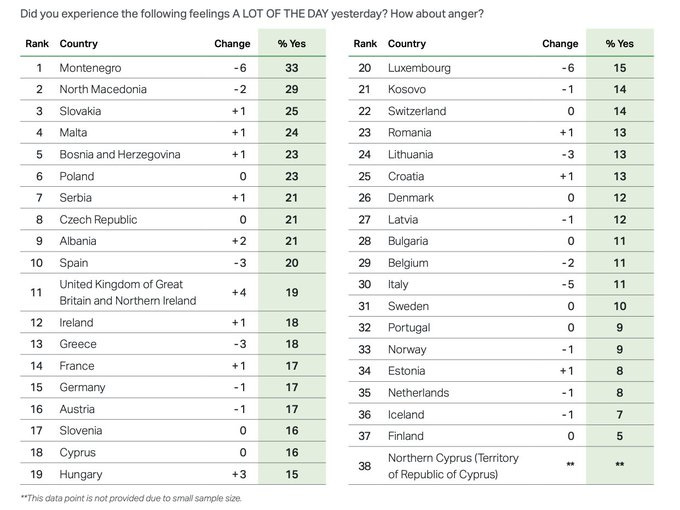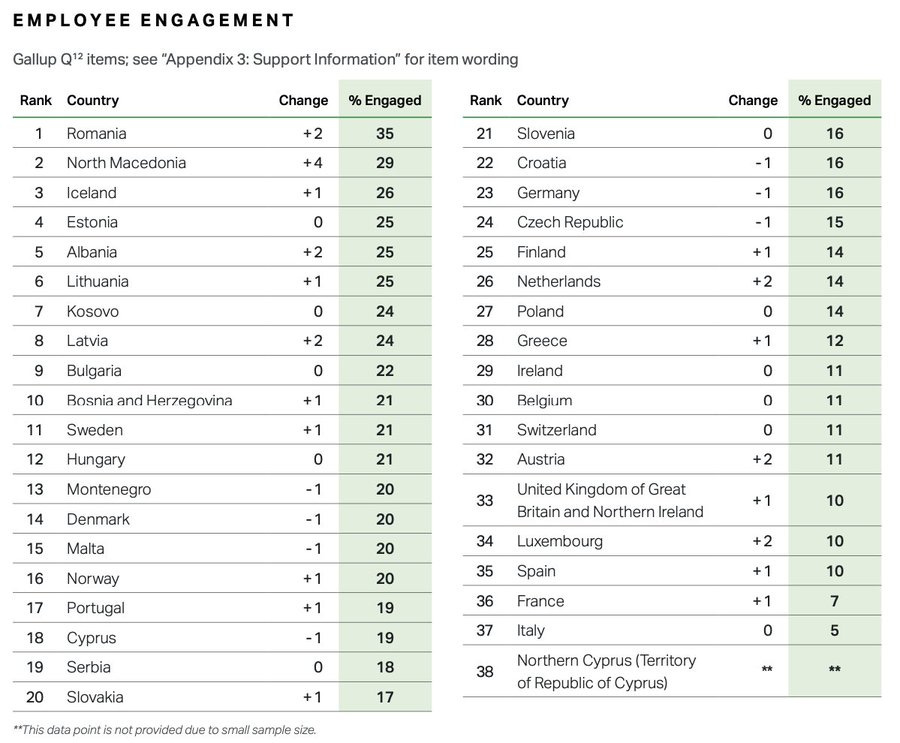We're angry, stressed and ready to quit
Gallup's workforce survey shows the challenges of fixing modern work

Gallup's Workforce survey is the gold standard when it comes to people's relationship with work. I find it compelling reading but end up with dozens of questions that I don’t feel I can answer. Their brand new report came out last week and it deserves attention. The summary is brutal: work is ruining the lives of millions of people. 19% of Brits say they feel ANGER for a lot of the day. 38% say their experience is STRESS.
In contrast a mere 10% of Brits describe themselves as ENGAGED with their jobs. This is one of the questions that leaves me wanting to understand what the data is measuring more fully. Because. although we're not the lowest. 5% of Italians and 7% of French people say the same, we are significantly below the United States. which scores 31%.
One of the other areas Gallup explores is workplace stress. Their report suggests that where we do our work has less impact on our stress levels than how engaged we are with them. Stress levels WFH and WFO are largely the same. Engagement here presumably is a reflection of whether they feel able to have an say on what they are doing.
And what’s the big ‘so what’? Well when Gallup asked workers who reported feeling disengaged what they would do to make their jobs better the top reason was to improve the culture.
They cite changes like recognising colleagues for the work they do, bosses being more open and approachable, having autonomy and receiving greater respect in their roles. For many of us the state of modern work is bleak, but the answer shouldn’t feel like a secret code we don’t have access to.
There’s an old adage that if after 10 minutes you haven’t worked out who the dickhead in the meeting is, then it’s you. This article attempts to show who the ‘jerk’ in the office is, and is a great read outlining the elements of working together that most people find uncomfortable. (For example even when told to give positive feedback many people felt uncomfortable, the mere act of giving feedback was stressful to them)
Amazon bosses are unfazed by workers being unhappy to be back in the office, ‘there’s more energy, collaboration, and connections happening, and we’ve heard this from lots of employees and the businesses that surround our offices.’
Very young workers (under 20) are showing incredibly low engagement with hybrid work
This is your final warning… come into the office or you’re fired, says Australian firm
Flex is a diversity issue: tech firm TCS’s RTO mandate led to an increase in female workers quitting
The WFH-hating Daily Mail reports on what working from home will do to human evolution (using images created by an office furniture company)
Research in January calculated that WFH was something of a win-win for employers because less time commuting led to more time working. A day remote working saved, on average, 72 minutes travel time of which half an hour was re-invested in more work. Contrasting research from the Federal Reserve Bank of New York suggests that on average remote workers work 3.5 hours less per week. The time saved is spent sleeping, relaxing and going out more. Pick the one you prefer I guess: “I’ve done my own research”, etc etc.
I’ve said repeatedly that parts of commercial real estate are a slow running train crash that will lead to a 2008 style crisis. Often heavily leveraged with debt, the sector is being squeezed by interest rates and low occupancy. Hold tight, number of owners are starting to default on their loans
In fact, here’s former guest Dror Poleg saying exactly that: “The next crisis will start with empty office buildings”







